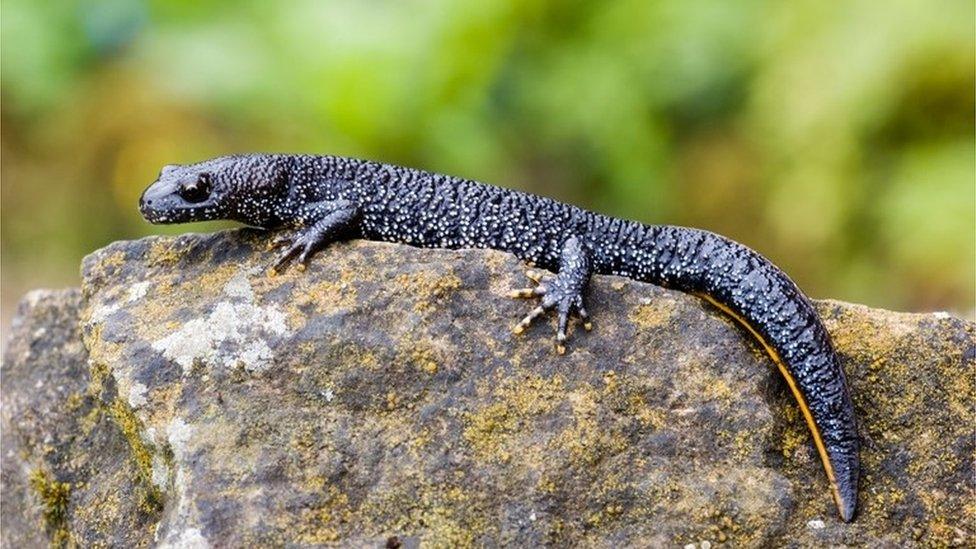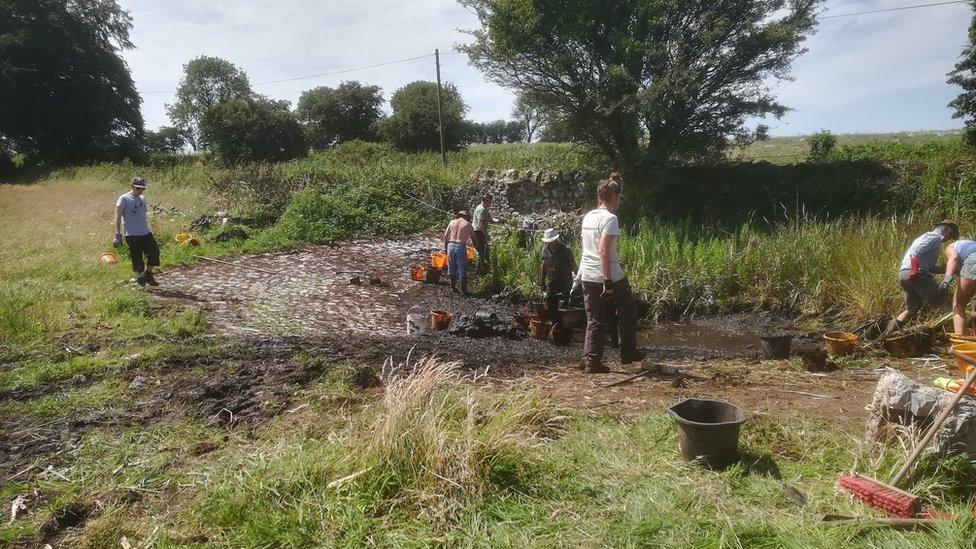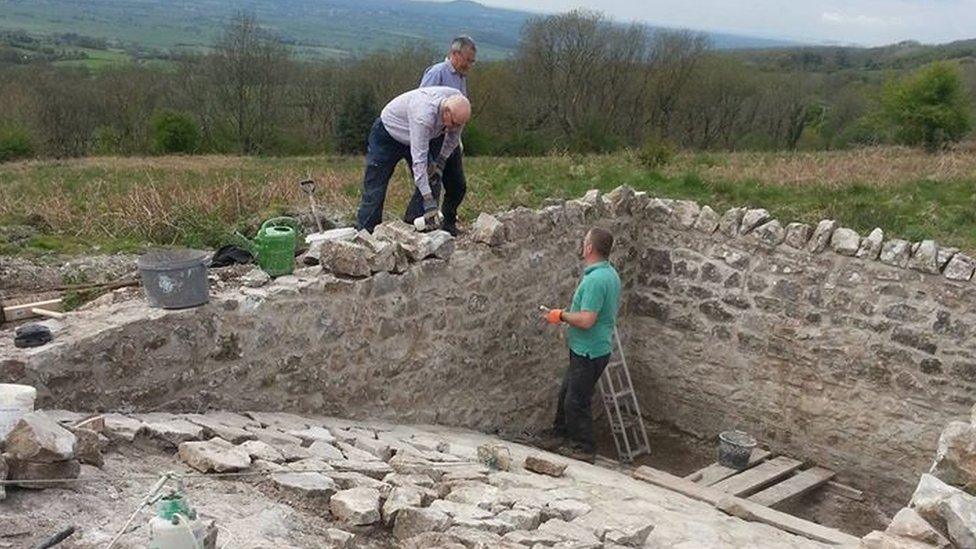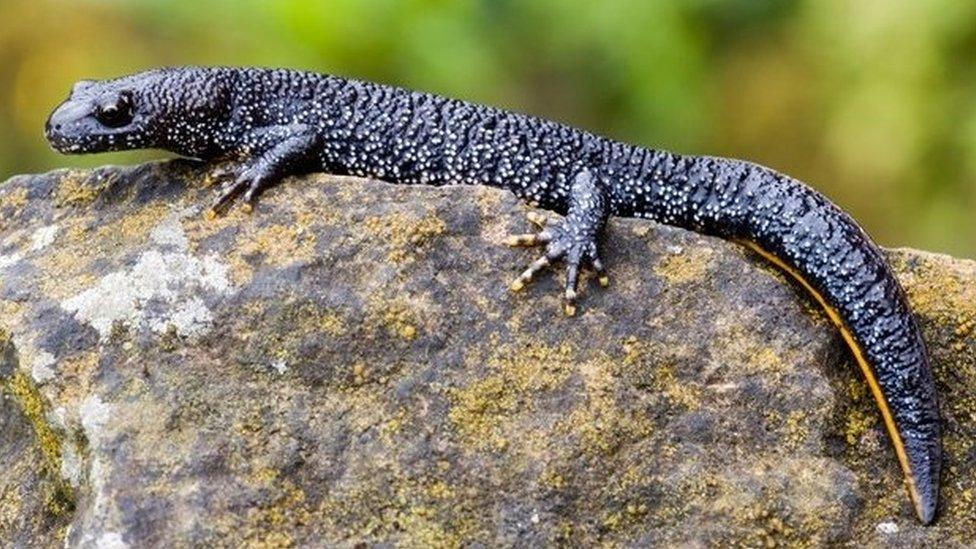Mendip ponds restored to help great crested newts breed
- Published

The newts can travel up to 500m on dry land
Work to restore derelict farm ponds on the Mendips has provided three new habitats for great crested newts.
The Reptile and Amphibian Group for Somerset said the aim was for the ponds to act as "stepping stones" to connect two local newt populations.
Chairman John Dickson said: "We worked out that we could restore some old derelict ponds in strategic positions... to create a network."
Newts have been spotted at three of the 28 ponds restored since 2016.
The group hopes to restore another 18 ponds.
"There is a population of great crested newts just west of Cheddar, and a population to the west of Westbury Quarry and in between there is a big area where there is none.
"So what we wanted to do is connect those up," Mr Dickson said.
"In England they are not that rare, but they have experienced a huge decline since the 1950s.
"They're not good at adapting to garden ponds -they like quite large ponds, deep ponds, and they have to be fish-free."

The farm ponds fell out of use after the 1950s when farmers did not rely on them to water livestock
The newts can travel up to 500m across land to find a breeding site.
The ponds are within a 23 sq km area and were previously used for livestock.
They fell out of use from the 1950s when farms were connected to mains water.
Concerns that traditional materials and methods of using lime mortar would deter the newts due to the change in alkalinity have so far proved unfounded.

The ponds were restored using traditional methods and materials such as limestone
- Published14 June 2019

- Published4 April 2016

- Published6 August 2019
